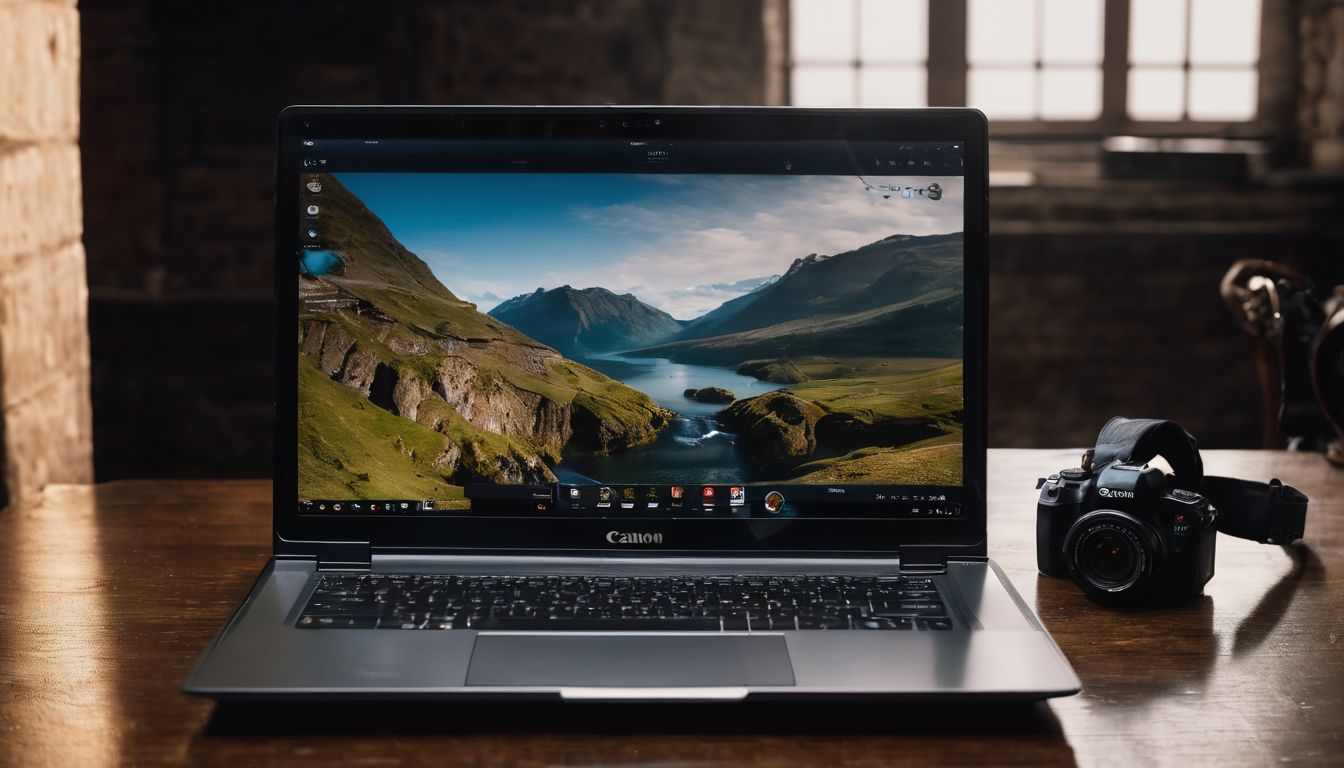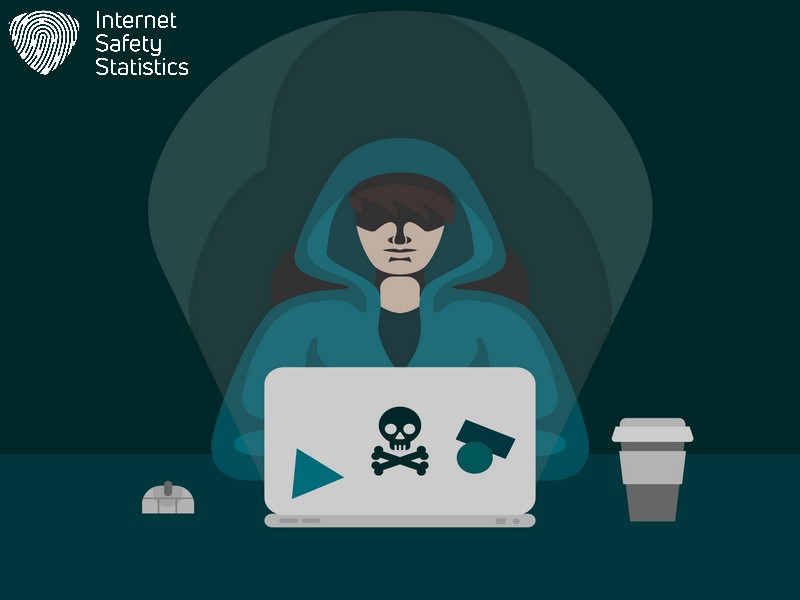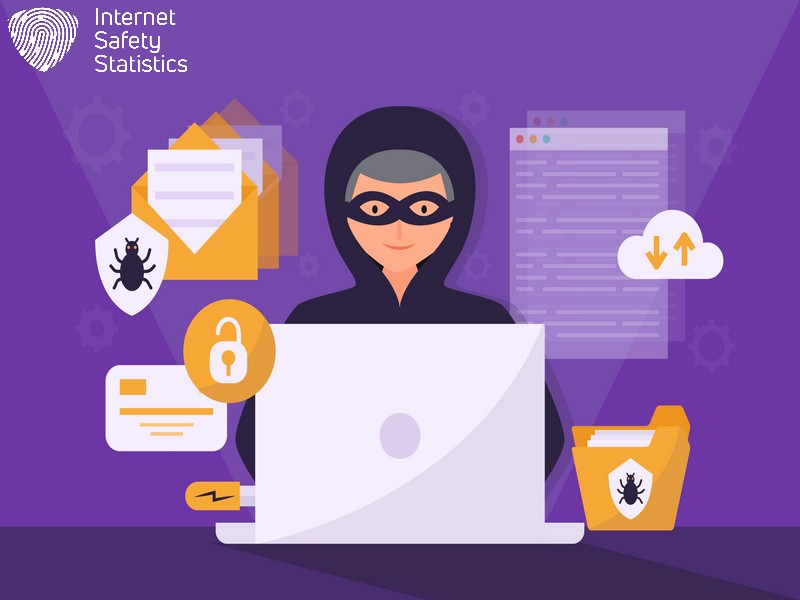
Our online activities generate a constant data trail in today’s digital age. This information is collected by websites, internet service providers, and advertisers, often without our explicit knowledge. While some data collection practices enhance user experience, others raise concerns about online privacy. Here’s where anonymous browsing emerges as a vital tool for taking control of your digital footprint.
Anonymous browsing refers to methods that conceal your online identity and activities. This can be achieved through various tools and techniques, such as using a Virtual Private Network (VPN) or the incognito mode offered by most web browsers. By employing these methods, you can significantly reduce the amount of information websites and online trackers can gather about your browsing habits and online presence.
This heightened level of privacy offers numerous benefits. Anonymous browsing can shield your search history from prying eyes, preventing targeted advertising and personalised recommendations based on your online activity. Furthermore, it can help safeguard your online identity from threats like hackers or identity thieves. Additionally, anonymous browsing empowers you to access geo-restricted content or websites that may be blocked in your region.
This article will guide you through simple but effective methods to conceal your identity online and keep your internet usage confidential. Let’s make privacy a priority!
Understanding Anonymous Browsing
Anonymous browsing lets you conceal your identity and online activity from prying eyes. It differs from private browsing because it protects against web tracking and data collection more extensively. Understanding how web tracking works is essential for grasping the need for anonymous browsing.
What is Anonymous Browsing?
Anonymous browsing is the key to keeping your online activities private and protecting your identity from prying eyes. It works by hiding your IP address, which is like the home address of your computer, and it ensures that websites can’t keep track of where you go or what you do online. With anonymous browsing, you become invisible on the internet; advertisers, hackers and even government agencies will find it tough to monitor your digital footprints.
Employing tools such as VPNs (Virtual Private Networks) or Tor browser are effective ways to achieve this privacy. A VPN encrypts your internet connection and routes it through servers elsewhere, masking where you are and making it hard for someone to follow your online journey.
The Tor browser goes a step further by bouncing your encrypted traffic through multiple nodes all over the globe, adding layers of protection so no one can trace it back to you. Next, we’ll explore how these two compare: Anonymous Browsing versus Private Browsing. Knowing their differences empowers you to choose to safeguard personal data while navigating cyberspace.
Differences between Anonymous Browsing and Private Browsing
Anonymous browsing and private browsing are similar in that they both aim to protect user privacy, but there are key distinctions between them. Private browsing mainly focuses on concealing a user’s browsing history from being stored on their device. In contrast, anonymous browsing hides the user’s IP address and other identifying information from websites. When using private browsing mode, your internet service provider (ISP) can still track your online activities, whereas anonymous browsing prevents ISPs and websites from tracking you.
Private browsers do not encrypt your data like VPNs or Tor do for anonymous surfing. In contrast, anonymous browsing tools provide an added layer of security against online tracking and eavesdropping attempts. While private browsing is ideal for keeping your local device clear of traces, anonymous surfing actively blocks external entities from monitoring your online movements. It offers a more comprehensive shield against surveillance than standard browser settings alone.
How Web Tracking Works
To understand the importance of anonymous browsing, it’s crucial to comprehend how web tracking works. Websites and online platforms use various methods to monitor user activities, such as cookies, trackers, and fingerprinting techniques.
Collecting browsing habits and preferences data can create a detailed online behaviour profile. This information is often used for targeted advertising, personalising content, and even selling to third parties without your consent.
Moreover, internet service providers (ISPs) can also track and record your online activities if you’re not using encryption or anonymity tools. You must be aware of these tracking methods to protect your online privacy effectively.
Risks of Not Browsing Anonymously

Not browsing anonymously puts your data at risk of collection and tracking, leading to privacy invasion and targeted advertising. It’s important to understand the potential dangers of exposing your online identity.
Data Collection and Tracking
Internet users are constantly tracked through various methods such as cookies, browser history, and online trackers. Companies collect this data to create targeted advertising and potentially invade your privacy. Not browsing anonymously risks exposing your personal information to unwanted tracking and potential misuse by businesses or malicious parties.
Internet security can be compromised when personal data is collected without consent, leaving users vulnerable to privacy invasion and the dangers of targeted advertising. Using anonymous browsing techniques can help prevent this intrusion into your online activities while safeguarding your privacy.
Privacy Invasion
Online privacy invasion is a significant concern for internet users, with the risk of personal data collection and tracking threatening our online activities. By not browsing anonymously, individuals are vulnerable to targeted advertising and potential misuse of their private information by businesses and other internet users.
Browsing without protection can also lead to ISPs and government tracking threats, putting our online security at risk. However, VPN services, web tracker encryption, or privacy-conscious browsers can help prevent privacy invasion and safeguard our online identities. By understanding the risks associated with online privacy invasion, it becomes essential for internet users to take proactive measures to protect their personal information while surfing the web.
Targeted Advertising
Targeted advertising tracks your online activities and uses the gathered data to show specific ads based on your browsing behaviour. By browsing anonymously, you can prevent targeted advertising from collecting and using your data to tailor advertisements towards you. This can help protect your online identity, minimise privacy invasion, and avoid being bombarded with personalised ads while surfing the web.
Using anonymous browsing tools like VPNs or privacy-conscious browsers can shield your digital footprint from tracking technologies advertisers use. These measures provide protection against targeted advertising, preserve your internet privacy, and reduce the risk of having personal information exploited for commercial gain or intrusive marketing purposes.
Methods for Anonymous Browsing
Utilise a VPN, proxy servers, privacy-conscious browsers, and anonymous search engines to protect your online identity. Find out more about these methods by reading the full blog post!
Fundamental Steps for Anonymous Browsing
You can use numerous tools to browse online anonymously, such as VPNs or anonymous search engines. These fundamental steps help secure your data online and shield your device from hackers lurking online.
- Use a reliable Virtual Private Network (VPN) to encrypt your internet connection and hide your IP address. This helps in preventing others from tracking your online activities. Avast Secure Browser offers built-in anti-fingerprinting technology to protect your online identity.
- Clear your browsing history and cookies regularly to prevent websites from tracking your online behaviour. Using privacy-conscious browsers can provide additional protection against web tracking, protecting personal information.
- Utilise anonymous search engines like DuckDuckGo, which do not track or store your search history, ensuring web anonymity and protecting your online identity.
- Consider using proxy servers for browsing anonymously, as they act as intermediaries between you and the websites you visit, concealing your IP address and enhancing internet browsing security.
- Employ secure and anonymous payment systems when making transactions online to prevent the disclosure of personal information that could be used to track your online activities.
Using a VPN
To enhance your online privacy and protect your identity, consider using a VPN (Virtual Private Network) as a powerful tool for anonymous browsing. A VPN encrypts your internet connection, masking your IP address and making it difficult for third parties to track your online activities. By routing your internet traffic through secure servers worldwide, VPNs provide an additional layer of security, safeguarding your data from potential threats such as hackers and government surveillance.
This added protection conceals your digital footprint and allows you to access geo-restricted content and securely connect to public Wi-Fi networks without compromising privacy.
Proxy Servers
Proxy servers act as intermediaries between your device and the internet. They can help conceal your IP address and encrypt your internet traffic, enhancing privacy and security. Using a proxy server, you can bypass restrictions imposed by websites or networks, accessing content that may be restricted in certain locations. Utilising a proxy server alongside other anonymity tools, such as VPNs, can provide an additional layer of protection for your online activity, allowing you to browse the web with increased peace of mind.
If you’re interested in understanding how proxy servers work and their role in maintaining online anonymity, it’s important to explore the various types available on the market. SOCKS proxies are just one example; they allow users to mask their IP addresses by routing data through a remote server before reaching its destination – helping to protect user identities when browsing online.
Privacy-Conscious Browsers
When protecting your online identity and maintaining privacy, using privacy-conscious browsers can make a significant difference. These browsers are designed with built-in features that prioritise user privacy and security.
For example, Avast Secure Browser offers anti-fingerprinting technology to prevent tracking, block ads, and counter phishing attempts, providing a safer online experience. Using these privacy-focused browsers, internet users can minimise the risk of their data being accessed or misused by businesses or other parties.
In addition to anti-tracking features, some privacy-conscious browsers offer robust encryption and enhanced security measures to further safeguard users’ online activities. This added layer of protection helps prevent unauthorised access and ensures that sensitive information remains secure while browsing the web for peace of mind.
Anonymous Search Engines
Anonymous search engines are a vital part of maintaining online privacy. These search engines do not track or store users’ search history or personal information, providing an extra layer of anonymity. Using anonymous search engines, such as DuckDuckGo and Startpage, internet users can prevent their search activities from being monitored by advertisers and third parties.
These platforms offer enhanced protection against targeted advertising and maintain user privacy by not collecting personal data. Anonymous search engines help individuals take control of their online searches, ensuring that their browsing habits remain private and secure from prying eyes. This additional step in anonymous browsing further safeguards users’ online identity and maintains a sense of security while navigating the web.
Enhancing Anonymity with Security Measures

Enhance your online anonymity by managing cookies and browser history, using web trackers and encryption, employing privacy tools, utilising anonymous payment systems, and considering the specific needs of mobile devices.
Ready to protect your online identity? Keep reading to learn more about how you can browse anonymously and securely!
Managing Cookies and Browser History
Nearly all websites you visit initially ask you to accept cookies to display the website properly. These cookies are stored as part of your browsing data and must be manually deleted, along with your browsing history, to remove them. To manage cookies and browser history effectively, consider the following:
- Regularly clear your browsing history to remove traces of your online activities and maintain privacy.
- Adjust your browser settings to control how cookies are stored and used by websites you visit.
- Use browser extensions or add-ons that offer cookie management features to help control which sites can store cookies on your device.
- Implement private browsing modes offered by most modern browsers to prevent the storage of browsing history and cookies during each session.
- Consider using privacy-conscious browsers with advanced tracking prevention features, allowing you to manage cookies and site data more effectively.
- Utilise secure password managers that enable you to control permissions for storing cookies and managing website data securely.
Using Web Trackers and Encryption
After managing cookies and browser history, it’s essential to consider using web trackers and encryption to safeguard your online presence further. Web tracking prevention tools help advertisers and other third parties block the collection of your data as you browse the internet. Encryption adds an extra layer of security by scrambling your online communication, making it unreadable to anyone trying to intercept it.
When employing web trackers and encryption, you can protect your online privacy from prying eyes attempting to track your digital footprint. Using these tools, you can prevent unauthorised access or data breaches that could compromise your sensitive information.
Employing Privacy Tools
After managing web trackers and encryption, it’s essential to employ privacy tools for enhanced online security. VPNs or virtual private networks can effectively conceal your IP address and browsing history, preventing others from tracking your online activities. Privacy-conscious browsers like Avast Secure Browser are equipped with built-in anti-fingerprinting technology to protect your digital identity and block ads and phishing attempts.
Moreover, anonymous payment systems can add an extra layer of protection by ensuring that financial transactions remain confidential. Considering the increasing threats to online privacy, incorporating these privacy tools into your browsing habits is crucial in safeguarding your data from unauthorised access.
Users can significantly enhance their online security and maintain control over their digital footprint by implementing privacy tools such as VPNs, anti-fingerprinting browsers, and anonymous payment methods while browsing the internet.
Utilising Anonymous Payment Systems
Anonymous payment systems offer a secure way to make online transactions without revealing personal information. Users can keep their financial details private using cryptocurrency or prepaid cards and protect themselves from fraud or identity theft. Additionally, these systems provide extra anonymity when making online purchases or payments, reducing the risk of compromised sensitive information.
Using anonymous payment systems helps maintain privacy and security while conducting transactions on the Internet. With the increased prevalence of data breaches and cyber attacks, individuals must take proactive measures to safeguard their financial information.
Considerations for Mobile Devices
When using anonymous browsing on mobile devices, consider using a reputable VPN app to encrypt your internet connection and hide your IP address. This will help protect your online identity and ensure your browsing remains private. Additionally, privacy-conscious browsers should be installed, and anonymous search engines should be used to enhance anonymity while surfing the web.
To safeguard your online identity, regularly update app privacy settings and limit permissions for unnecessary data access. Doing so can reduce the risk of personal information being collected without consent. Furthermore, be cautious when connecting to public Wi-Fi networks as they pose security risks. Implementing these measures on mobile devices can significantly enhance online privacy and security.
Can True Anonymity Be Achieved?
Fully concealing your online identity may not be possible, but following the tips and using the right tools can significantly enhance your privacy and security while browsing. Read on to learn more about protecting your online identity with anonymous browsing.
Limitations of Anonymous Browsing
While anonymous browsing can help conceal your online identity and protect your privacy, it is important to be aware of its limitations. Certain websites may restrict access or display content differently when accessed through anonymous browsing tools like VPNs or proxy servers. Additionally, some government agencies and ISPs have advanced methods for tracking online activities that these tools might not fully thwart, making it essential to stay informed about potential vulnerabilities.
Another limitation of anonymous browsing is the potential for slower internet speeds due to the rerouting of network traffic through proxy servers or VPNs. This can impact your overall browsing experience, especially when streaming videos or downloading large files.
Tips for Browsing Securely and Privately
We can give you various tips to consider when contemplating secure browsing. The following easy steps will allow you to combine anonymity and security online. Protect your online identity and privacy with these tips for secure and private browsing:
- Use a reputable VPN service to encrypt your internet connection and hide your IP address, preventing others from tracking your online activities.
- Regularly clear your browser history and manage cookies to minimise the amount of personal data stored by websites.
- Enable ad-blocking software to prevent targeted advertising and reduce the risk of falling victim to phishing attempts.
- Consider using a privacy-conscious browser with built-in anti-fingerprinting technology to protect against online tracking and data collection.
- Using web trackers and encryption tools to enhance security while surfing the internet makes it harder for websites to gather information about you.
- Employ anonymous payment systems when making purchases, ensuring that sensitive financial information is not easily accessible to others.
- Be mindful of security considerations for mobile devices, such as using secure Wi-Fi networks and avoiding public hotspots when conducting sensitive activities online.
In conclusion, safeguarding your online identity with anonymous browsing is crucial in today’s digital world. Utilising tools like VPNs and privacy-conscious browsers can effectively hide your IP address and browsing history. With these methods, you can take control of your online privacy and protect yourself from unwanted tracking and surveillance. Additionally, employing security measures such as managing cookies and utilising encryption fortifies your anonymity while browsing the web.
FAQs
1. What is anonymous browsing?
Anonymous browsing is a way of using the internet that keeps your online activities and identity hidden, protecting your personal information from being tracked.
2. How does concealing my IP address help protect my identity online?
By concealing your IP address, you prevent others from tracking your location or internet activity, which helps keep your online identity safe.
3. Can a VPN increase my internet security?
A Virtual Private Network (VPN) can significantly boost your internet security by encrypting your data and hiding your online presence.
4. Are there other methods besides VPNs for IP address concealment?
Beyond VPNs, other methods like proxy servers or privacy-focused browsers can also help conceal your IP address and maintain anonymity while browsing.
